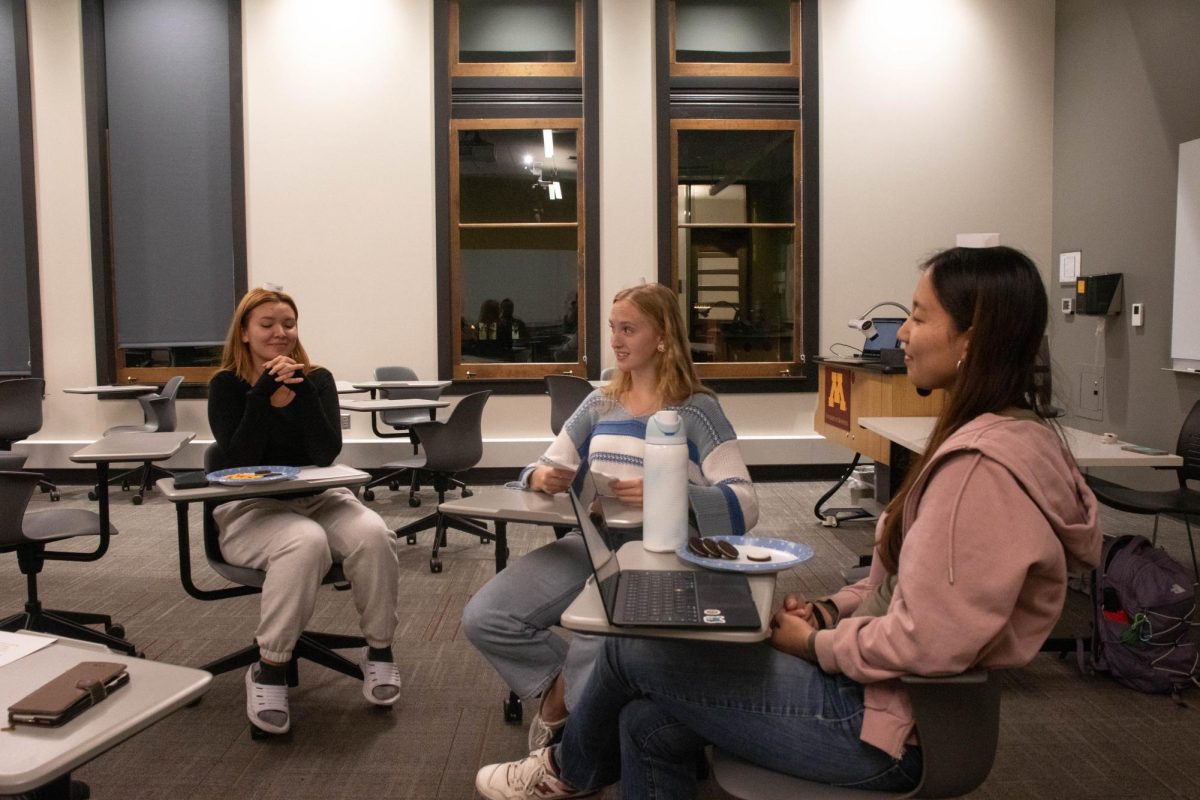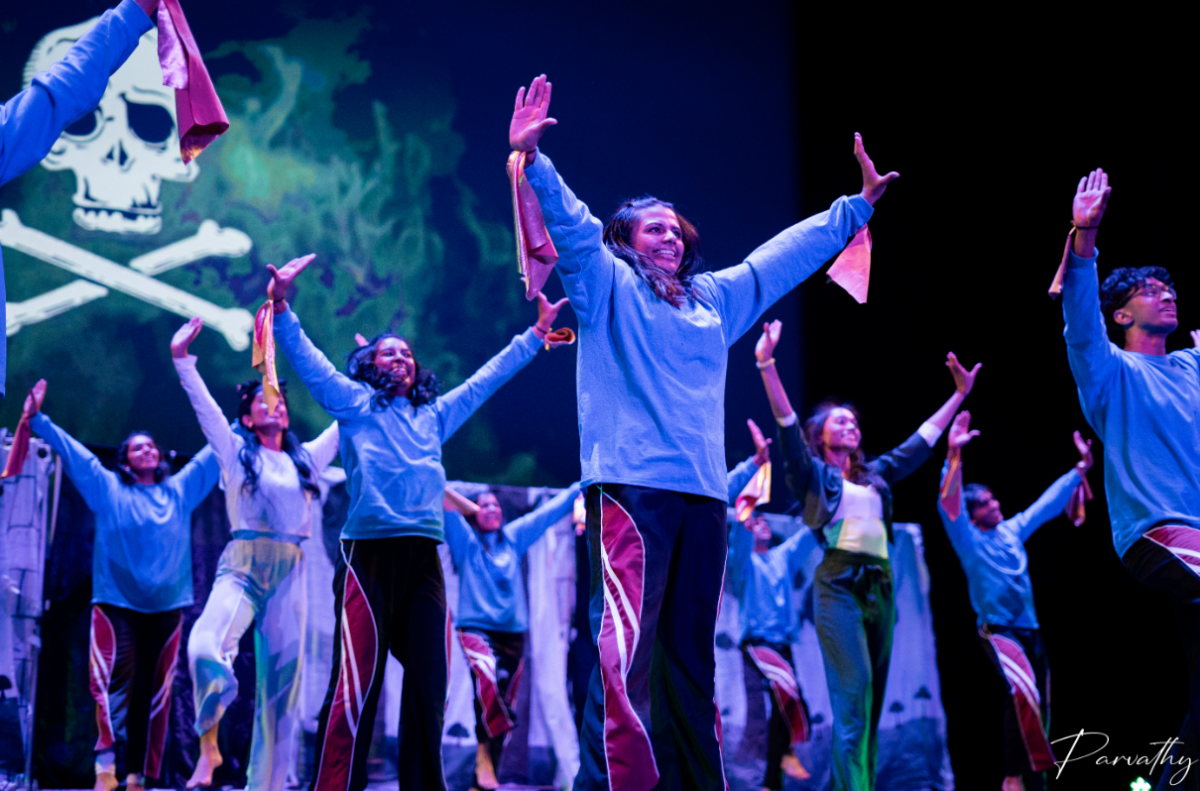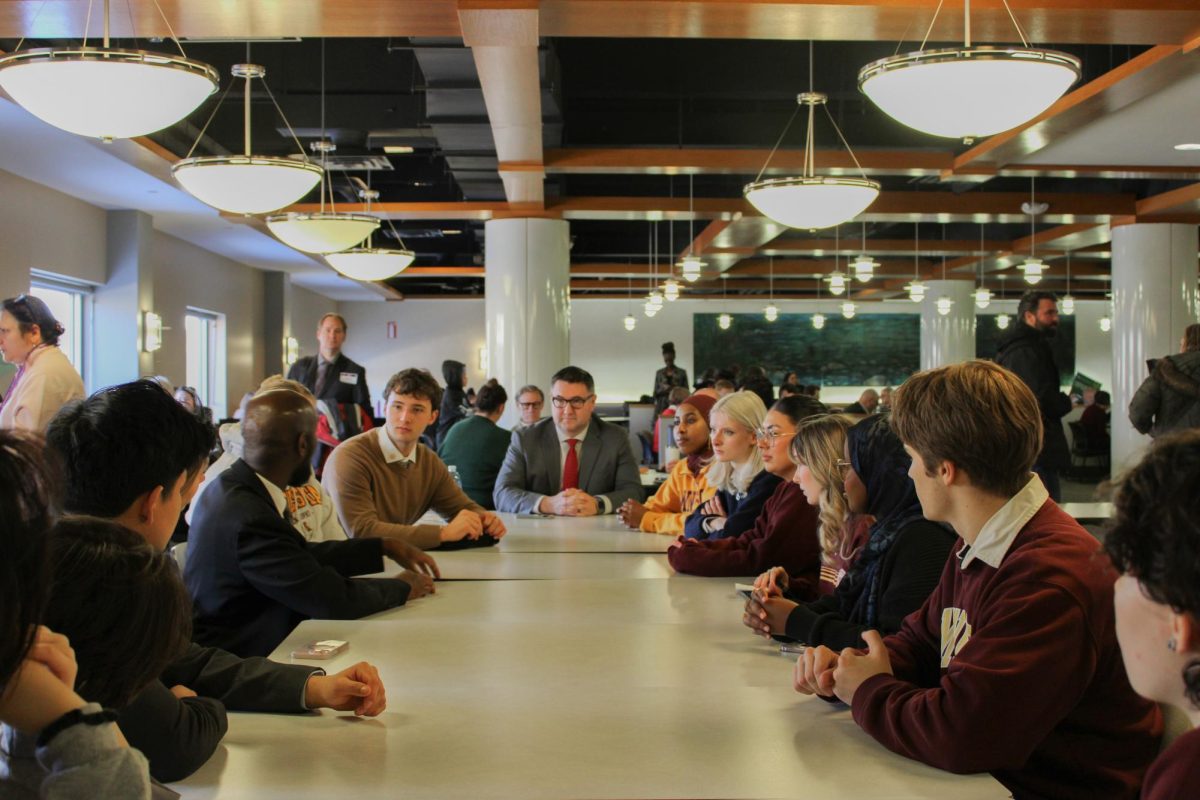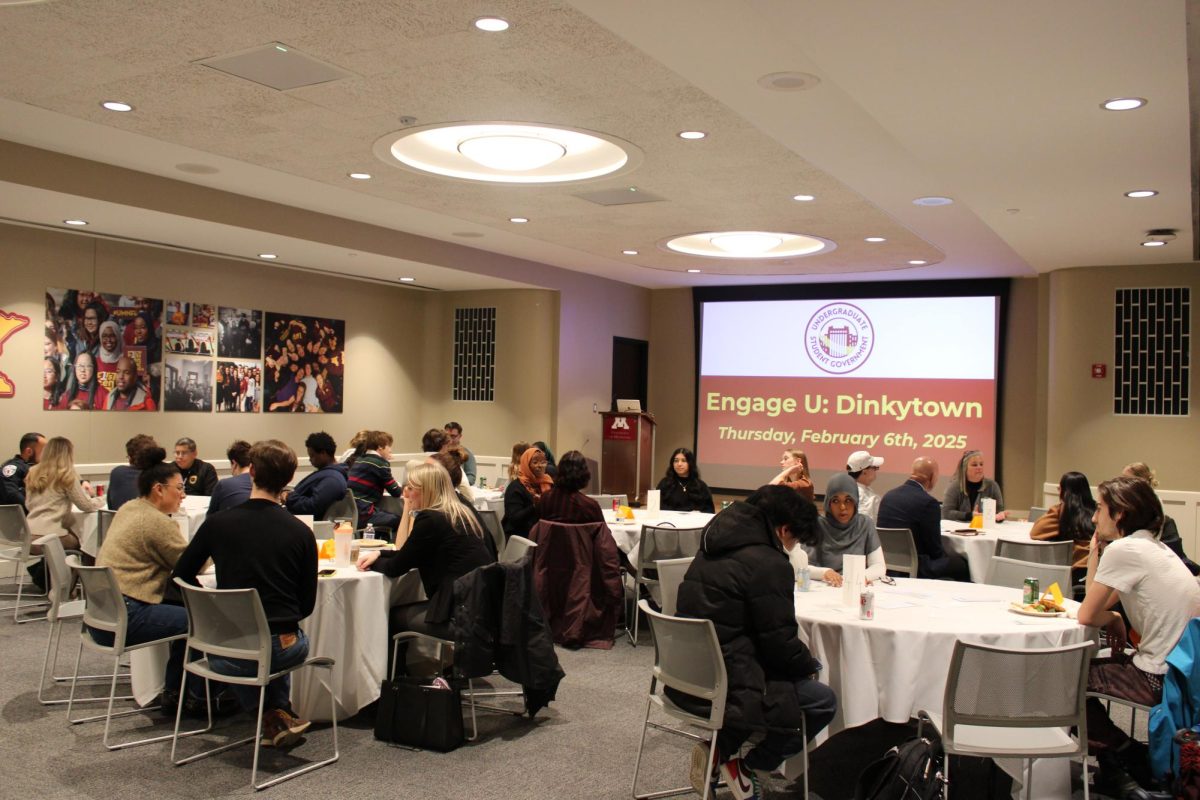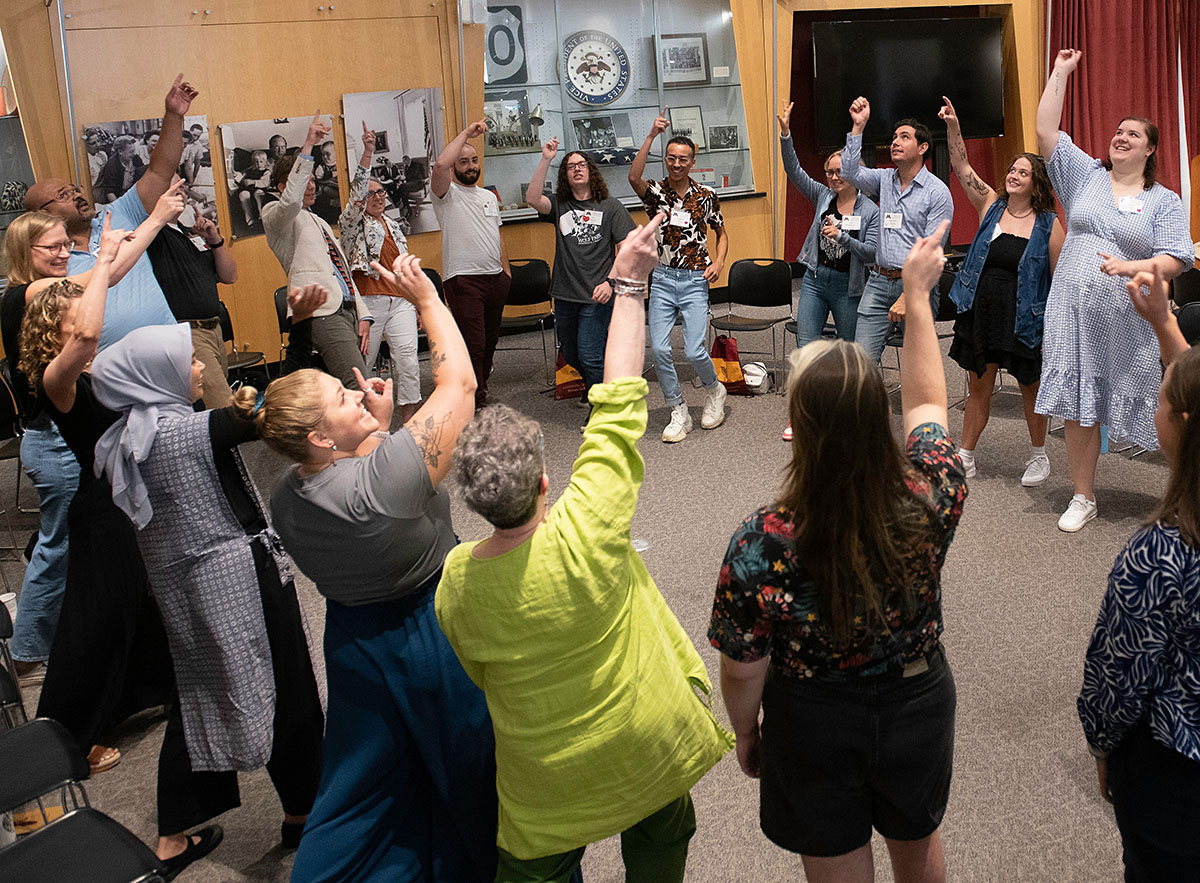Founded in spring 2024, the Minnesota Shakespeare Society aims to make Shakespeare more relatable and understandable to students through games and discussion.
The club, which was started after a group of students took a Shakespeare class taught by professor Katherine Scheil, meets twice a month. One meeting is for discussion while the other is to watch an adaptation of the play they discuss.
Club President Bernadette Rechek said that before taking Scheil’s class, most of the club’s founding officers did not have much of a connection to Shakespeare. But by the end of the class, they enjoyed reading his work.
The club’s six founding members — one of which being Minnesota Daily Campus Administration Editor Olivia Hines — wanted to find a way to stay in touch and keep learning about Shakespeare, which led to the club’s founding, Rechek said. Finding people who are also excited about discussing Shakespeare’s plays has been really helpful, she added.
“It’s definitely a collective effort, and it really helps that they’re also just as excited,” Rechek said. “We’re all really hyped about it, so that really it’s been a communal effort, getting the club moving.”
Social Media Coordinator Lucia Nortwen said when they first started the club there was a small turnout, though it has grown since then.
“When we started it, I kind of expected it to be a small thing,” Nortwen said. “But people have been really coming and enjoying it, and it’s super fun. I was very shocked by our turnout, especially this semester, so it’s been really fun to see it grow.”
Club Vice President Ai Xing, said she was not very interested in Shakespeare before taking Scheil’s class. After learning more about the professor’s research into female Shakespearian characters and the playwright’s wife, she said that element adds another layer of meaning and analysis to the characters, which intrigued her.
As a student minoring in English, Xing said she likes the social aspect of meeting other people studying English.
“What’s also super important is having a community of people who are English majors, because I don’t really have that,” Xing said. “It’s just fun because anybody can like Shakespeare, it doesn’t have to be for literary critics.”
The club keeps discussions fun by breaking down the plots of plays via memes, as well as acting out parts of the play. Rechek hopes students who attend the club see Shakespeare in a new light.
“I hope people leave the meetings kind of getting to know (the plays) a little bit more, and get to share their own opinions about Shakespeare too,” Rechek said. “It’s not a Shakespeare-only fan club.”
Rechek said she is extremely grateful to have a community of people who also enjoy working with Shakespeare. Discussing his work in groups and playing fun games that help make sense of the characters and language can make Shakespeare more fun.
“I think the vision that a lot of people have in their heads of Shakespeare is, like, really old, kind of stuffy, and difficult,” Rechek said. “When I actually had a good discussion, we finally got what he was trying to say. We all had the same, ‘Oh, this is actually, this is really fun.’”


